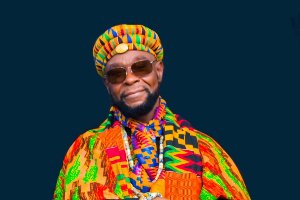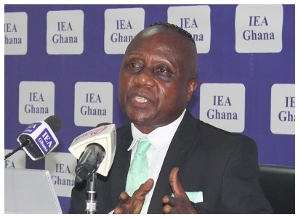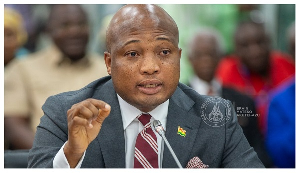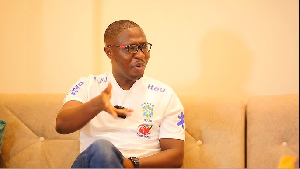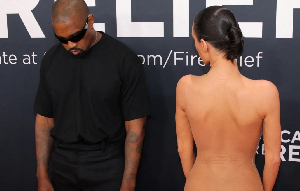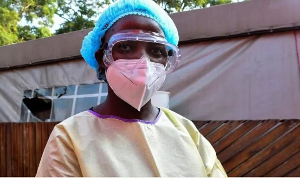Renowned Economist and Director of Research at the Institute of Economic Affairs (IEA), Dr. John Kwabena Kwakye, has explained that his dollarization proposal for dealing with the falling cedi was born out of desperation and can only be a short-term measure.
The former Bank of Ghana Monetary Policy Committee member, in a social media post on X, had advocated for official dollarization given the pace at which the cedi is currently depreciating.
But clarifying his statement, Dr. Kwakye emphasized that the move cannot be a long-term one.
"To be honest with you, I think I made that suggestion out of some kind of desperation. People are asking for short-term measures. What do we do now? It is like firefighting. So, I wasn't offering that as the long-term kind of solution," he told Starr News' Edem Kojo.
"I was making the point that given the way the exchange rate is going, it's as if our authorities don't have a solution to the problem. So, the action I thought is maybe let's just adopt the dollar," he further clarified.
Explaining how the dollarization would be rolled out, Dr. Kwakye proposed three options the government can explore.
"There are about three ways of doing it. The first is what we call unilateral dollarization. That way, we don't even have to agree with the US. We will sit down here and say, we want to adopt the dollar as our currency. So, we look at how much the Reserve Bank of Ghana has, some of it is in gold, some of it is in foreign exchange reserves, and so on. And therefore, we can let them keep part of it, and the rest we convert it to dollars and say, Ghanaians, bring your cedis in exchange for dollars," he explained.
He, however, reiterated that the move will only be a stop-gap measure while the underlying structural issues are addressed.
"This will be for a couple of years, maybe two years or so. It will not be a substitute for the underlying structural weaknesses; we should continue to take measures to address those problems. But for the meantime, it's like we are stabilizing the system," he emphasized.
The second approach, according to him, is a total adoption of the dollar.
"The second is to approach the US and say that we want to adopt your currency. In the same way, they will say, OK, what reserves do you have in exchange for it? So, you also exchange your reserve and then you take their currency," he said.
A more sustainable approach, according to Dr. Kwakye, is the maintenance of the cedi as the official currency, while fully backing the cedi with foreign exchange through the introduction of a currency board.
"The third approach is to maintain our currency. But we ask the central bank to make sure that they have enough foreign exchange to back it. So, we call something a currency board. A currency board means that you have your own currency but every single cedi is backed fully by foreign exchange. So, in that case, the cedi will not depreciate," he explained.
Dr. Kwakye adds that strict terms are, however, needed for its successful implementation.
"It comes with very rigid, strict terms in the sense that the currency board doesn't lend to the government. Because lending to the government also generates too much liquidity and then fuels depreciation. So, it brings some kind of restrictions," he concluded.
The cedi, since the beginning of the year, has depreciated by about 14% against the dollar, as the dollar is being sold at some retail outlets at GH¢15.
Business News of Friday, 17 May 2024
Source: starrfm.com.gh
My dollarization proposal a short-term desperation measure – Dr. Kwakye
Opinions
